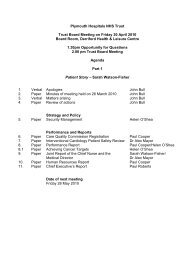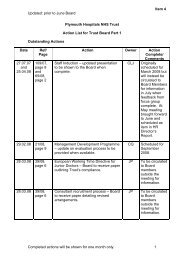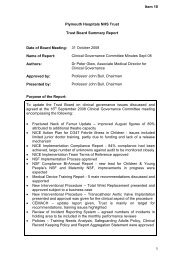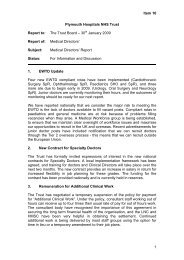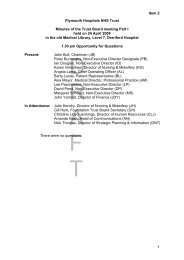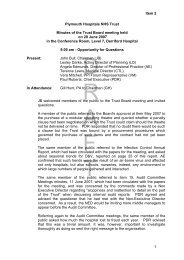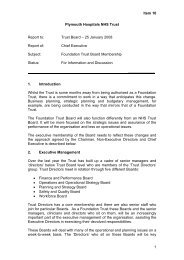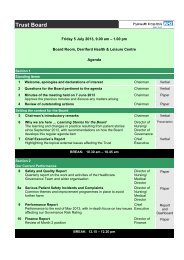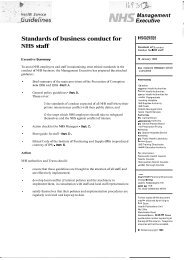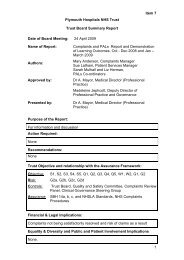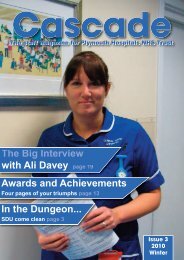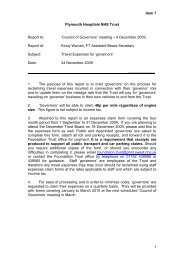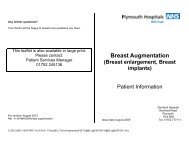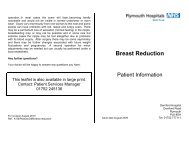referral guidelines for sleep apnoea and snoring patients - Plymouth ...
referral guidelines for sleep apnoea and snoring patients - Plymouth ...
referral guidelines for sleep apnoea and snoring patients - Plymouth ...
You also want an ePaper? Increase the reach of your titles
YUMPU automatically turns print PDFs into web optimized ePapers that Google loves.
Nasal pathology needs exclusion. Look <strong>for</strong>:<br />
‣ Nasal polyps<br />
‣ Allergic rhinitis<br />
‣ Deviated nasal septum<br />
WHEN AND WHERE TO REFER:<br />
Prior to <strong>referral</strong> the above differential diagnoses should be considered <strong>and</strong><br />
exacerbating factors such as obesity, alcohol, night sedation <strong>and</strong> smoking should be<br />
corrected.<br />
1. Snoring only: Do not refer to secondary care unless nasal pathology<br />
indicated.<br />
2. Significant OSA: Refer to the Chest Clinic after addressing risk<br />
factors.<br />
3. Hyper somnolence: Refer to Neurology.<br />
PRIOR TO REFERRAL PLEASE CONSIDER THE FOLLOWING:<br />
OSA<br />
The available treatments <strong>for</strong> OSA are CPAP or m<strong>and</strong>ibular splints. (Surgical<br />
treatments have unpredictable results. It is possible that they might make the use of<br />
CPAP more difficult).<br />
These treatments are only suitable <strong>for</strong> moderate <strong>and</strong> severe cases, where<br />
somnolence is significantly affecting lifestyle.<br />
Patients usually only tolerate the treatment if they have sufficient somnolence to<br />
impact on their quality of life. The degree of somnolence that warrants treatment is<br />
there<strong>for</strong>e, determined by the patient <strong>and</strong> their lifestyle. The Epworth score is a<br />
helpful measure, scores less than 12 are normal, 14 or more suggests moderate –<br />
severe OSA. (See sample questionnaire).<br />
Occasional nocturnal <strong>apnoea</strong>s may cause alarm to the <strong>sleep</strong>ing partner but if the<br />
frequency is low then there will be no ensuing daytime somnolence <strong>and</strong> no need to<br />
treat. Reassurance without <strong>referral</strong> is sufficient.<br />
Mild or occasional symptoms of OSA do not require <strong>referral</strong>, as it is unlikely that<br />
treatment will be accepted. There is no evidence of long-term health risk <strong>for</strong> this<br />
group.<br />
Review of risk factors often leads to improvement, particularly obesity <strong>and</strong> alcohol<br />
excess. (Trials of Orlistat or Sibutramine are recommended together with dietary <strong>and</strong><br />
lifestyle advice)



